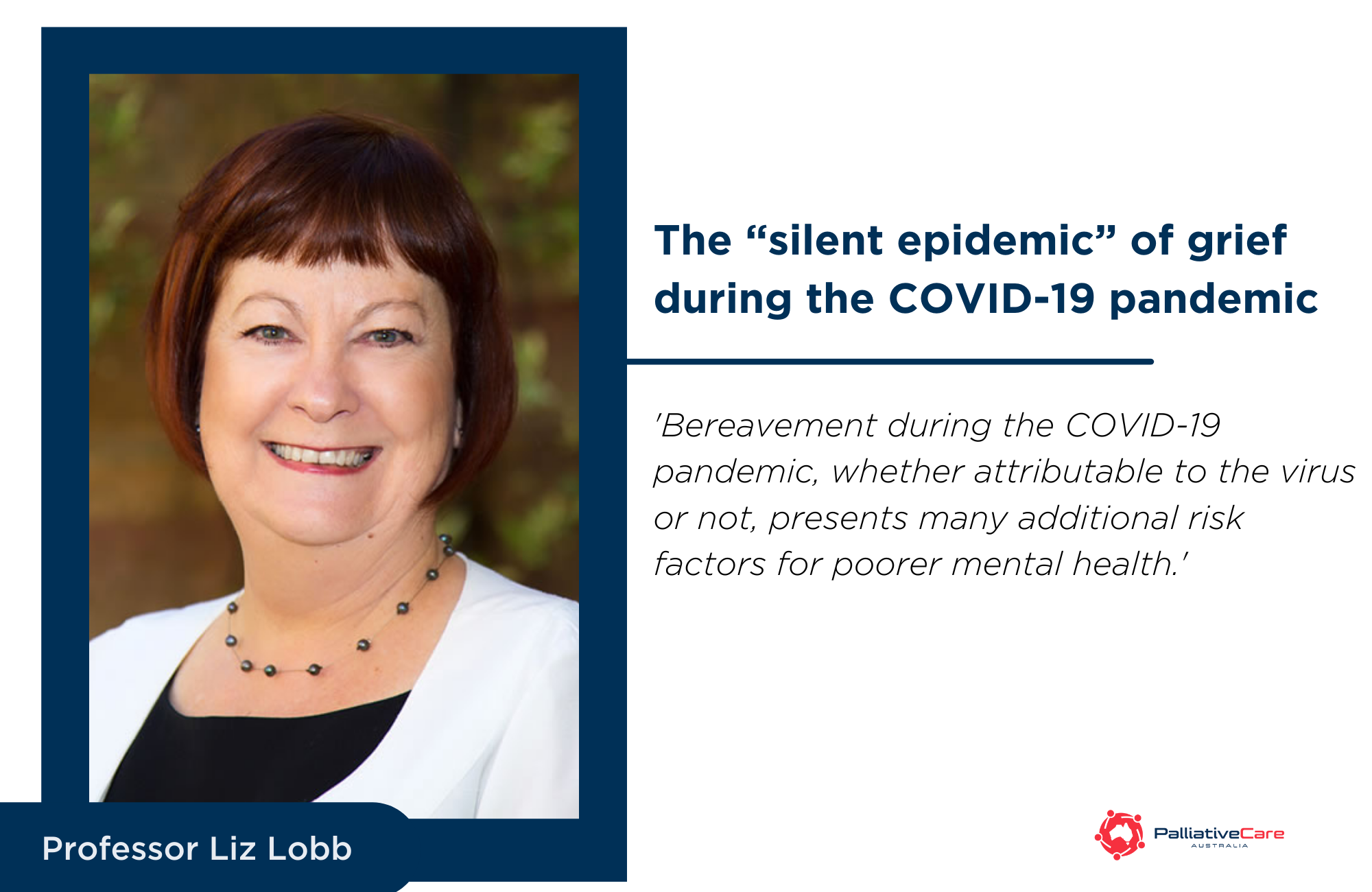The “silent epidemic” of grief during the COVID-19 pandemic
The “silent epidemic” of grief during the COVID-19 pandemic
by Liz Lobb, Adjunct Professor of Palliative Care at the University of Technology and the University of Notre Dame
Thursday, March 03, 2022
As the death rates from COVID-19 rise around the world – currently at 5.89 million - researchers are beginning to identify what has been called the “silent epidemic” of grief.
In Australia the figure stands at 4,966 deaths – a 7 days average on 16th February, 2022 of 54 deaths a day.
Bereavement during the COVID-19 pandemic, whether attributable to the virus or not, presents many additional risk factors for poorer mental health. These include the public health measures of social distancing, personal protective equipment requirements, border closures, limits on visitors to hospital and residential aged care facilities, and reduced physical contact at funerals.
Although successful in reducing the spread of the virus and overall number of deaths, the public health measures have disrupted not only the way we live, but the way in which we die and grieve.
In Australia, deaths during COVID-19 also occurred in a milieu of loss upon loss on the back of the catastrophic east coast bushfires and a prolonged drought, meaning many people are managing these multiple losses.
Rates of general mental distress have increased during the past two years of the pandemic, with Lifeline recording record call numbers and numerous reports of increased distress in young Australians and the general population. We are now starting to learn more about the mental health of Australians who have been bereaved during the COVID-19 pandemic.
One of the largest National studies on bereavement undertaken in Australia during the COVID-19 pandemic has collected preliminary data in 2021 from over 1,500 bereaved people. Results indicate that of people bereaved at least 12 months, a third were experiencing ongoing severe grief reactions, and moderate to severe levels of depression and anxiety.
The study aims to document the experience of those bereaved during this time and identify their short-term and long-term support needs. This ongoing study is now even more relevant given the deaths being experienced with the Omicron variant.
While the research suggests that overtime, most people find ways of living with their loss and the distress it causes, data indicates that 7 to 10% of bereaved people will experience chronic and disabling grief, which impacts their ability to function in their daily life and is linked with substantial mental and physical health morbidity including increased rates of depression, anxiety, suicide and substance use.
The enormous burdens associated with this condition has prompted the World Health Organisation to introduce the new diagnostic category into the International Classification of Diseases. Recognising legitimate concerns against medicalising normal human suffering, this condition was considered important to include as proven treatments exist.
The condition, termed Prolonged Grief, is characterised by unrelenting and overwhelming yearning and distress; feeling like it can’t be true, difficulty approaching reminders of the loss; losing your sense of identity; feeling numb, and that life has no meaning or purpose anymore. These reactions must exceed cultural and religious norms and be ongoing for at least 6 -12 months.
Moreover, prolonged grief is just one of the potential negative mental health outcomes following bereavement. Depression and anxiety are also commonly experienced. For others, their grief may ebb and flow, with increases in distress associated with significant reminders or anniversaries.
Annually around 160,000 Australians die from any cause. In Australia it has been estimated that 4 persons are effected by every death that occurs. A recent study from the USA during the COVID-19 pandemic suggested this could be as high as 9 people.
Using the conservative figure of four, this means that each year at least 44,000 Australians will develop chronic and debilitating mental health impairments following the death of a family member or close friend leaving them unable to return to their previous levels of functioning. How COVID-19 will impact grief related distress is the focus of a growing body of international research.
The Australian researchers will use the information from this on-going study to develop a national plan for bereavement support during the COVID-19 pandemic and any future pandemics. The study is open for recruitment until March 2022. For more information about the study see uts.edu.au/bereavementincovid19
Liz Lobb is Adjunct Professor of Palliative Care at the University of Technology and the University of Notre Dame, a Bereavement Counsellor and educator. Liz.Lobb@health.nsw.gov.au
